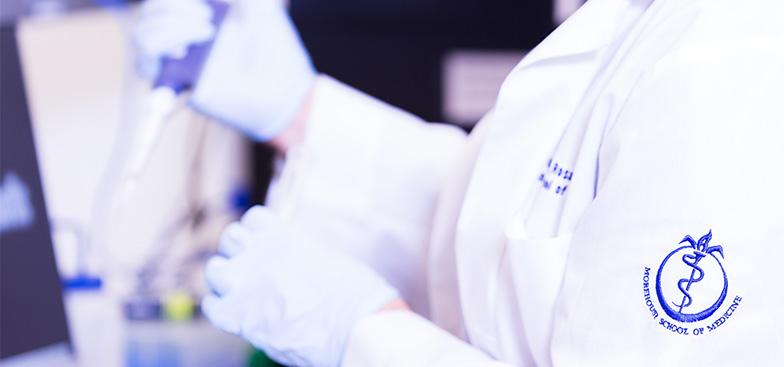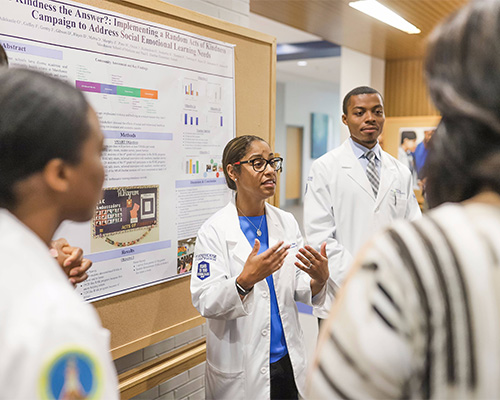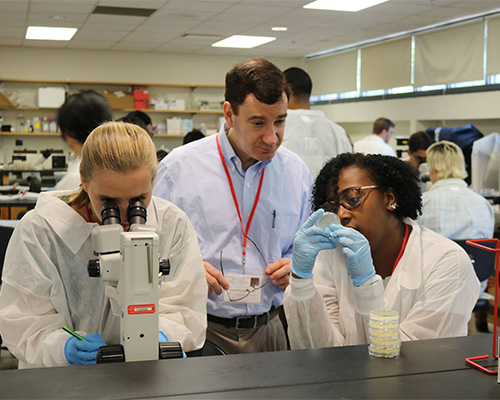Research
Translating Discovery Into Health Equity
From the genetic epidemiology of cardiovascular disease in ethnic populations to the physiology of sleep disorders, ���Ҵ�ý School of Medicine (���Ҵ�ý) leads rigorous basic science, clinical, community health, and policy research to improve the health and well-being of people everywhere.
Our research portfolio in cancer, cardiovascular disease, neuroscience and HIV/AIDS, among other topics impacting underserved communities, is well-established with significant funding from leading research funders such as National Institutes of Health and Centers for Disease Control and Prevention.
In line with our mission, we are excited to foster the type of exploration that reduces and ultimately eliminates health disparities in this country.”
Sandra Harris-Hooker
Vice President & Executive Vice Dean
We lead and collaborate on initiatives to translate research discoveries into health equity by ensuring that every project we undertake has an opportunity to move from the lab to the clinic to the community, applying out Tx TM philosophy. As a result, ���Ҵ�ý scientists are also responsible for developing a range of innovative tools, including:
- 63 patents between 2009 and 2019
- Training and technical assistance for more than 5,000 primary care providers and rural hospitals in GA to adopt and meaningfully use electronic health records.
- A and youth coding program empowering young adults to embrace healthy behaviors and reducing the risk of heart disease.
- Methods for testing the efficacy and safety of natural herbal extracts that can be used as a treatment for HIV and AIDS to improve patient outcomes around the globe.
- A student-run clinic and a self-contained mobile clinical research unit that provides students and investigators unique opportunities to engage more diverse populations in research, particularly in rural communities in Georgia.
At ���Ҵ�ý, we aim to create a supportive and challenging environment for all of our faculty, staff, and students, as well as others in the broader scientific community aspiring to further cultivate their research portfolio with campus resources such as:
- State-of-the-art labs and equipment
- Multidisciplinary research and collaboration opportunities
- Bold and intentional integration between basic science research and clinical practices
Join the conversation and stay abreast of new findings from basic science, clinical, community health and policy research conducted by researchers at ���Ҵ�ý School of Medicine.
FOLLOW US ON TWITTER:
@���Ҵ�ýEDUresearch



